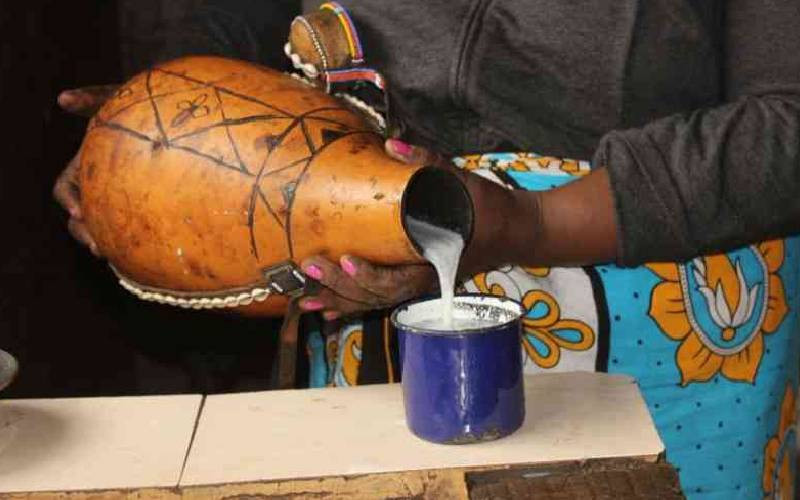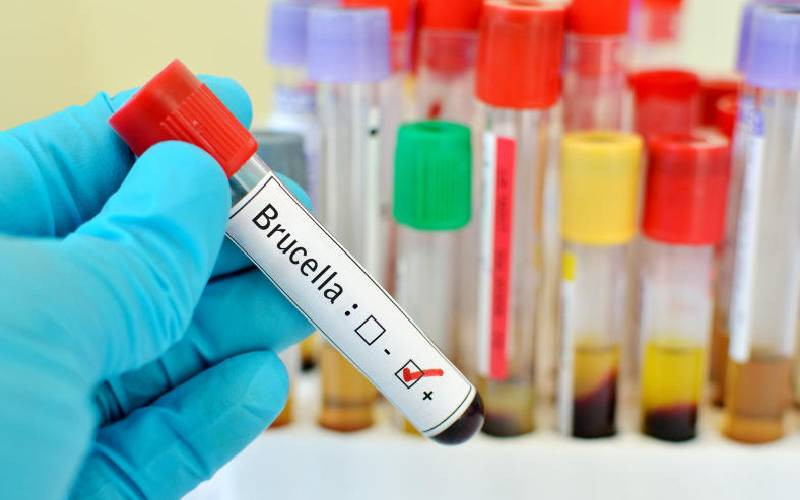
A child gets immunised against measles, mumps and rubella in Wajir County. March 2019. [File, Standard]
Africa is witnessing a surge in outbreaks of vaccine-preventable diseases in the last year, according to the World Health Organisation (WHO).
The diseases include polio, cholera, tetanus, measles, hepatitis B, yellow fever, malaria, and cervical cancer.
Dr Matshidiso Moeti, the WHO Regional Director for Africa, warned that as countries restore health services as the pandemic dissipates, there is a need for routine immunisation for resilient health systems which could get “severely strained not only by Covid-19 but by other diseases and vaccines are at the heart of a successful public health response.”
As part of marking the World Immunisation Week, WHO warned that between January and March 2022, the African region recorded almost 17, 500 cases of measles, a 400 per cent increase compared to the same period last year.
About 20 African countries reported measles outbreaks in the first quarter of this year, eight more than in the same period last year.
Two scheduled doses of the measles vaccine result in long-lasting protection against the potentially deadly disease and to eliminate measles, countries are expected to attain and maintain the two doses of measles vaccination coverage of 95 per cent.
Dr Lucy Mecca, Head of the National Vaccine and Immunisation Programme, singled out reduced uptake of the second dose as one challenge as in the case of Measles-Rubella, the first dose recorded an 82 per cent uptake but only 52 per cent for the second dose.
Dr Mecca said the focus of immunisation is to reduce the numbers of zero dose children and “we also aim to reduce the number of children unvaccinated for pentavalent 3, increase coverage of HPV vaccine among 10-14-year-old girls to 70 per cent” and increase the coverage of the second dose of measles Rubella vaccine to 95 per cent and children above two who have not received both doses of Measles-Rubella should be taken to a health facility for the dose.
By June this year, the immunisation programme also targets to increase Covid-19 coverage to 70 per cent for adults and reduce coverage/inequity disparities between counties since “to reap full protection from the vaccine, children who have delayed or have missed any of their recommended vaccines should be presented.”
Dr David Githanga a paediatrician and Vaccine Champion said the aim of World Immunisation Week “is to create and demand immunisation” as it’s a societal issue.
Dr Collins Tabu, Health Advisor at UNICEF said there was a need for strategies to debunk vaccine myths considering the unvaccinated posed a health danger to the vaccinated.
 The Standard Group Plc is a multi-media organization with investments in media
platforms spanning newspaper print
operations, television, radio broadcasting, digital and online services. The
Standard Group is recognized as a
leading multi-media house in Kenya with a key influence in matters of national
and international interest.
The Standard Group Plc is a multi-media organization with investments in media
platforms spanning newspaper print
operations, television, radio broadcasting, digital and online services. The
Standard Group is recognized as a
leading multi-media house in Kenya with a key influence in matters of national
and international interest.











